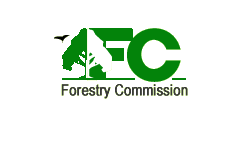BACKGROUND
A vital source of livelihood for most people and a good source of income for Ghana as a country is her forests.
It follows therefore, that the forest is utilised and managed on a sustainable basis. This approach would make the forest and the resources therein eternally available for extraction and use to satisfy various needs.
A strong point in achieving this is to provide training in technical skills and management related to the processing of especially the traditional and lesser-used wood species which adorn Ghana’s forests.
A study sponsored by the Timber Export Development Board (TEDB) revealed that the wood industry was severely hit by non-availability of professionals, skilled technicians and artisans. Most positions demanding skilled labour were occupied and performed by unskilled labour trained in apprenticeship or on-the-job. This led to low efficiency, high waste, low income, less employment, poor quality of products and thus minimum returns on investment.
To address this dismal situation, the erstwhile TEDB and Forest Products Inspection Bureau with assistance from the World Bank, set up the FORESTRY COMMISSION TRAINING CENTRE at Akywkrom-Ejisu, in a most picturesque environment some 24 kilometres smooth drive from the heart of Ghana’s timber industry KUMASI, the capital of the Ashanti Region. FCTC’s strategic central location at Akyawkrom-Ejisu makes it accessible to all timber processing companies and furniture firms in the Ashanti , Brong Ahafo, Eastern, Western, Central and Greater Accra Regions.
| MISSION“At FCTC, our prime concern is the efficient and sustainable utilization of timber resources. Our commitment to this is manifested in the development and upgrading of the professional knowledge and skills of personnel in the wood-based industry, through high quality technical and managerial training courses, extension and consultancy services in a cost effective manner”. |  |
| Front View of the Centre |
VISION
It is envisaged that, by the year 2010, FCTC will be the leading institution within the ECOWAS sub-region offering high quality technical training, consultancy, extension, and appropriate technology transfer services in all aspects of downstream wood processing.
Objectives of FCTC In Order Of Priority
The Forestry Commission Training Centre’s Business Plan (2003-2005) indicates that the following operational objectives have been set.
1) To improve the training capacity of FCTC
2) To establish and maintain regular extension and consultancy contacts with the wood industry and trade.
3) To develop an effective institutional framework and structure for FCTC.
4) To be at the forefront of new technology transfer in downstream wood processing.
5) To improve revenue generation at FCTC.
6) To build capacity in the micro and small-scale tertiary sub-sector of the wood industry to reduce poverty of operators.
